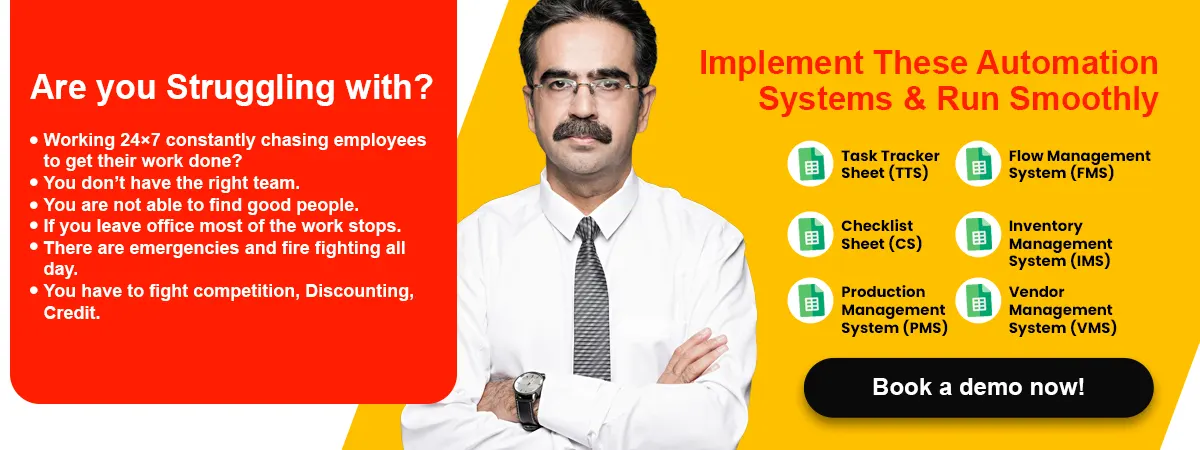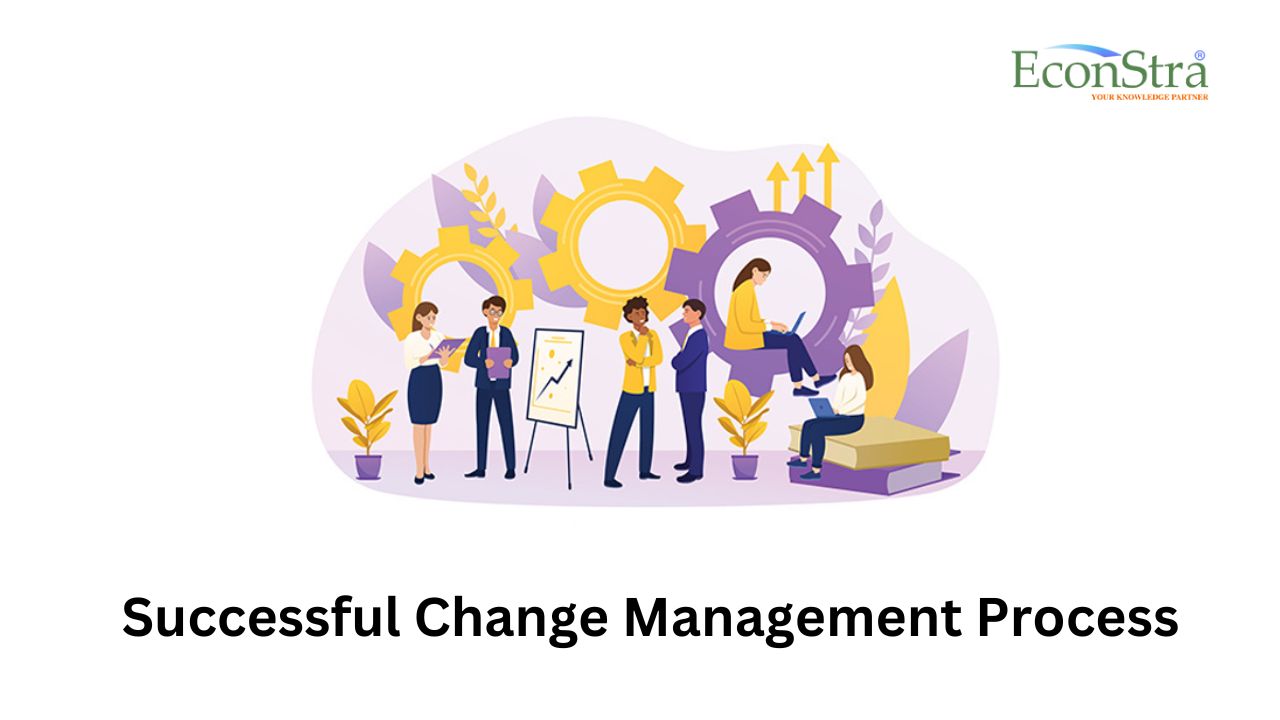by Soumyajit Admin
Share

In the bustling landscape of today’s corporate world, juggling multiple tasks simultaneously is the norm rather than the exception. Amidst this chaos, the significance of effective task management cannot be overstated. Task management is the process of organizing, prioritizing, and executing tasks efficiently to achieve specific objectives.
So, in essence, it is the compass that guides individuals and teams towards their goals in a structured manner.
Let’s get started!
Also, read: How Business Automation Helps in Error Minimization
What Is Task Management?
Task management is a multifaceted approach essential for navigating the complexities of modern work environments. At its core, it revolves around deconstructing intricate projects into bite-sized tasks, each with its own set of responsibilities and deadlines.
This segmentation not only facilitates clearer objectives but also ensures that no aspect gets overlooked in the broader scheme. Moreover, task management isn’t a one-size-fits-all concept; rather, it encompasses a diverse array of tools and methodologies tailored to meet the unique demands of different industries and organizational structures.
Whether it’s as straightforward as jotting down tasks on a to-do list or as sophisticated as utilizing advanced project management software with intricate features like Gantt charts and Kanban boards, the spectrum of task management solutions is extensive. This adaptability ensures that businesses of all sizes and industries can find a suitable approach to streamline their workflows, boost efficiency, and ultimately, drive success.
Also read: What Does Business Process Reengineering Involve?
Why Do Companies Need Task Management | Task Management in the Modern Workplace
- Enhanced Productivity: Task management serves as a compass guiding employees towards high-priority tasks, reducing distractions, and fostering a laser focus on essential objectives. Streamlining workflows and providing clarity on task priorities, it empowers individuals to accomplish more in less time, ultimately leading to heightened productivity levels and greater efficiency throughout the organization.
- Improved Collaboration: Task management platforms act as virtual hubs where team members can converge, irrespective of geographical barriers. Through centralized task allocation and seamless communication channels, collaboration becomes second nature, promoting synergy and collective problem-solving. This enhanced collaboration cultivates a sense of camaraderie and shared ownership, driving projects toward successful fruition while fostering a culture of innovation and teamwork.
- Efficient Resource Allocation: Task management tools enable companies to optimize resource allocation by strategically assigning tasks based on skill sets and availability. By leveraging real-time insights into project progress and resource utilization, organizations can prevent resource bottlenecks, minimize overallocation, and maximize the efficiency of their workforce. This ensures that every resource is utilized judiciously, leading to cost savings and improved project outcomes.
- Transparency and Accountability: Task management instills transparency within teams by clearly delineating task assignments, deadlines, and responsibilities. This transparency fosters a culture of accountability where team members take ownership of their tasks and strive to meet deadlines promptly. Additionally, transparent workflows facilitate open communication and feedback exchange, promoting collaboration and trust among team members, ultimately leading to enhanced team performance and project success.
- Adaptability and Flexibility: In today’s fast-paced business landscape, adaptability is paramount, and task management provides the framework for companies to thrive amidst constant change. Task management allows organizations to swiftly reallocate resources, reprioritize tasks, and adjust workflows in response to evolving priorities or market dynamics. This flexibility enables companies to stay agile and responsive, seizing opportunities and mitigating risks effectively, thereby maintaining a competitive edge in the market
- Data-Driven Decision-Making: Task management systems serve as invaluable repositories of data, offering insights into project progress, performance metrics, and resource utilization. By harnessing this data, companies can identify bottlenecks, analyze trends, and make informed decisions to optimize workflows and enhance operational efficiency. Whether it’s identifying inefficiencies, reallocating resources, or refining processes, data-driven decision-making empowers organizations to continually improve and adapt to meet evolving business needs, driving sustainable growth and success.
Also read: How Workflow Efficiency Impacts Business Growth?
Implementing Task Management Strategies
To leverage the benefits of task management effectively, companies must adopt the following strategies:
- Choose the Right Tools: Opt for task management software tailored to your organization’s specific needs and workflows. Whether it’s the visual simplicity of Kanban boards, the comprehensive planning of Gantt charts, or the agility of agile methodologies, prioritize solutions that seamlessly integrate into your existing processes. The goal is to empower your team with tools that enhance productivity, streamline workflows, and facilitate effective collaboration, ultimately driving success and achieving organizational goals.
- Provide Adequate Training: Invest in comprehensive training programs to familiarize employees with the functionalities of selected task management tools. Equip them with the knowledge and skills needed for efficient task prioritization, time management, and utilization of software features. By ensuring that team members are proficient in utilizing these tools to their fullest potential, organizations can maximize productivity, minimize errors, and accelerate project timelines, leading to improved outcomes and greater overall success.
- Establish Clear Guidelines: Define standardized protocols for task allocation, progress tracking, and communication to promote clarity and consistency across projects. Clear guidelines eliminate ambiguity, reduce misunderstandings, and foster a cohesive working environment where everyone is aligned towards common objectives. By establishing transparent processes, organizations can enhance efficiency, mitigate risks, and improve collaboration, ultimately driving project success and achieving desired outcomes.
- Encourage Collaboration: Cultivate a culture of collaboration where team members are encouraged to freely communicate, exchange ideas, and provide feedback. Foster an environment where diverse perspectives are valued, and collaboration is seen as integral to achieving shared goals. By promoting open communication channels and creating opportunities for collaboration, organizations can harness the collective intelligence of their teams, drive innovation, and foster a sense of ownership and camaraderie, ultimately leading to increased productivity and enhanced project outcomes.
- Regularly Review and Refine: Task management is a dynamic process that requires continuous evaluation and refinement. Regularly review workflows, analyze performance metrics, and solicit feedback from team members to identify areas for improvement. By actively seeking input and adapting to changing needs, organizations can optimize task management strategies, address inefficiencies, and drive sustained productivity gains. This iterative approach ensures that processes remain aligned with organizational goals, enabling teams to adapt to evolving challenges and maintain a competitive edge in today’s dynamic business landscape.
NOTE:
In today’s fast-paced and ever-evolving workplace, maximizing efficiency has become imperative for businesses to stay competitive. Task management lies at the heart of operational success, ensuring that teams effectively allocate resources, prioritize tasks, and meet deadlines. Econstra, renowned as one of the top business consultants in India, recognizes the critical role of efficient task management in driving organizational performance. Using cutting-edge methodologies and industry insights, Econstra equips businesses with the tools and strategies necessary to streamline workflows, enhance productivity, and optimize resource utilization. From implementing agile project management frameworks to leveraging advanced digital tools, Econstra empowers organizations to adapt to the demands of the modern workplace and achieve peak operational efficiency. With Econstra’s expertise, businesses can navigate the complexities of task management with confidence, driving sustainable growth and success in today’s dynamic business environment.
Conclusion: Understanding Task Management in the Modern Workplace
In conclusion, task management serves as the cornerstone of organizational success in today’s fast-paced business landscape. By empowering companies to prioritize tasks, optimize resources, and foster collaboration, task management lays the groundwork for achieving strategic objectives efficiently. Embracing task management isn’t just about managing tasks—it’s about orchestrating a symphony of productivity that propels companies toward their goals.
So, whether you are a startup striving for growth or a multinational corporation aiming for market dominance, integrating robust task management practices into your workflows is the key to staying ahead of the curve. Harness the power of task management, and chart your course towards unparalleled success.
With task management, the possibilities are limitless, and the journey is exhilarating.
So, what are you waiting for? Equip your teams with the tools they need, empower them to collaborate seamlessly, and embark on a transformative journey toward unparalleled productivity and success. Task management is not just a solution; it is a catalyst for organizational excellence. Unlock its full potential, and watch your company soar to new heights.
STAY IN THE LOOP
Subscribe to our free newsletter.
In today’s fast-paced, dynamic business environment, the success of any organization hinges on the performance of its teams. High-performing teams are not just a product of chance; they are meticulously crafted through effective leadership and strategic talent management. Today, here, in this blog post, we delve into the intricacies of developing high-performing teams, exploring the […]
In the realm of teamwork, effective communication acts as the glue that holds everything together. Whether you are collaborating on a project, managing a team, or striving for a common goal, clear and open communication is paramount to success. However, despite its significance, communication gaps often plague teams, leading to misunderstandings, delays, and frustration. Here, […]
In today’s fast-paced business environment, change is not just inevitable; it’s essential for growth and survival. Whether it is adapting to new technologies, responding to market shifts, or restructuring internal processes, businesses must be adept at managing change effectively. However, implementing change management strategies can be challenging without a clear roadmap. So, today, here, in […]
Welcome aboard the journey of unlocking the true potential of your business through the art of sales strategy. In a landscape where competition is fierce and markets are ever-evolving, developing a winning sales strategy is not just an option; it’s a necessity for survival and prosperity. Whether you are a budding entrepreneur or a seasoned […]





